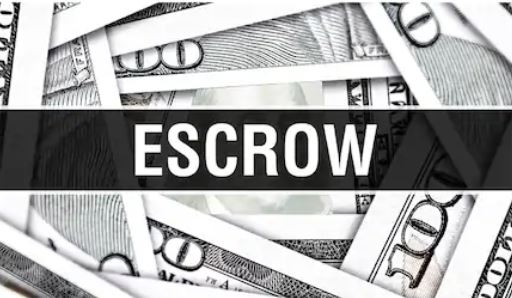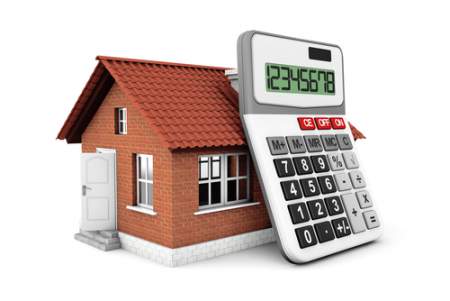There are certain costs that sellers need to pay when selling their homes. The largest expense is the purchase or rental of a new property. They may also have to transfer utilities and other services to their new establishment and incur other moving costs.
In some transactions, home sellers are required to pay certain closing costs. These costs are a combination of fees and other charges, they will vary depending on the type of charge and the area in which you live. Average closing costs for sellers are approximately five to ten percent of the home’s total sale price.
Selling a home in Memphis, TN can be complicated at times. The entire process may take several weeks or months to complete. It can still be accomplished, if you have a solid game plan, perseverance and a motivated buyer.
Here’s a quick rundown of some of the more common closing costs that sellers are expected to pay:
1. Attorney fees.
Attorneys may be hired to oversee a property sale in some areas. Tennessee does not currently require an attorney to be present when a home is sold. You can choose to hire an attorney if you wish to assist with the closing process.
It may be an appealing option if you’re trying to sell a property as is, or if your home was inherited from relatives. Attorney fees can vary from firm to firm. Most attorney fees in home sales typically range from $500 to $1000 or more.

2. Closing cost credits.
If you’re in a hurry to sell your property or were attempting to sell your home in a buyer’s market, you may have offered the buyer credits toward closing costs as an added incentive. This is also referred to as a seller concession or a seller assist.
These credits go towards the buyer’s closing costs so that they’ll have to pay less money for those expenses. It would be listed as a line item on the closing paperwork.
Most closing cost credits can vary, anywhere from under $100 to a few hundred dollars or more depending on the agreement that was reached.
3. Escrow and closing fees.
An escrow is a temporary bank account that holds funds for taxes and other closing fees.
Office expenses for copying and recording documents and charges for transferring paperwork to the appropriate state and local government offices are some of the expenses that are covered by escrow accounts.
Escrows are usually charged at a certain percentage (usually around one percent of the home’s total sale price) or a flat dollar amount, ranging from about $300 to $2,500 on average. Escrow costs are typically split evenly between the home buyer and home seller.

4. Homeowners association dues.
If you live in a townhome, condo or other similar type of residence, you’re probably used to paying homeowners association dues. These fees that cover lawn maintenance, paving and other duties are usually charged monthly, quarterly or annually.
You may be required to pay a prorated amount of homeowner’s association dues before closing. Some associations will charge a fee to transfer those dues to the new owner.
Such fees are often minimal, at about $100 or less. Typical homeowner’s association dues are around $1,000 to $3,000 per year or more.
5. Property taxes (prorated).
All states charge property taxes. These taxes are usually charged twice a year.
You may also be responsible for paying a portion of the property taxes that are due before the home is sold. The buyer will then be liable for all future property tax payments on the home.
Property tax values can fluctuate depending on the city assessment of the property, the type and size of home and the area where you live. Most property taxes are anywhere from $1,000 to $5,000 or more annually.

6. Real estate agent commissions.
Realtors often receive a commission from the sale of a home. These commissions are typically three to six percent of the home’s total sale price.
About half of that is the commission that is paid to the buyer’s real estate agent for their commission on the transaction.
Commission amounts will vary from one sale to the next. If you’re looking to reduce the commission rate, you can negotiate with your realtor to see if they will take a lower rate.
You could also sell the home yourself and list it as “for sale by owner.” However, you’d still be responsible for paying commission to the buyer’s agent once the property is sold, and you’d also have to list and market the property by yourself.
7. Title insurance.
Title insurance is a one-time cost. It covers the home buyer if there are any active liens against the property by third parties (such as contractors or creditors for unpaid work or by the government for unpaid taxes, for example).
Title insurance also protects the buyer when there are disputes over the property or if someone else has a legal claim to the home and the land that it rests on.
Home sellers are typically expected to pay for title insurance. Title insurance policies are usually priced at $1,000 to $5000 on average.

8. Transfer taxes.
Transfer taxes are charged for transferring ownership of a home from one party to another. They’re also known as a title fee or a government transfer tax.
Transfer taxes vary by state. The current rate for transfer taxes in Tennessee is 37 cents for every 100 dollars of sales price for a home.
Conclusion
These are the primary components of sellers’ closing costs. Other fees and charges may be applied according to local, state and federal rules and regulations.
Your realtor and the title agent who will be present when the closing paperwork is signed can help you understand and examine these charges in greater detail if you have questions or concerns.

Closing costs are a necessary part of many home sales. They may take a bite out of your overall proceeds from the sale of the home, but failure to pay these charges can results in fines or penalties later on. It’s a good idea to properly prepare and budget for these items as soon as you can.
Once those costs are paid and the final paperwork is signed, you’ll soon receive your check for the sale of the property. The buyer will receive the keys to their new home.
You can breathe easier knowing that the transaction has been completed and can look forward to starting the next chapter of your life in a new location.
Have Questions? Ask The Lumiere Team!
Your real estate agent is the best source of information about the local community and real estate topics. Give Rebecca Edwards call today at to learn more about local areas, discuss selling a house, or tour available homes for sale.

